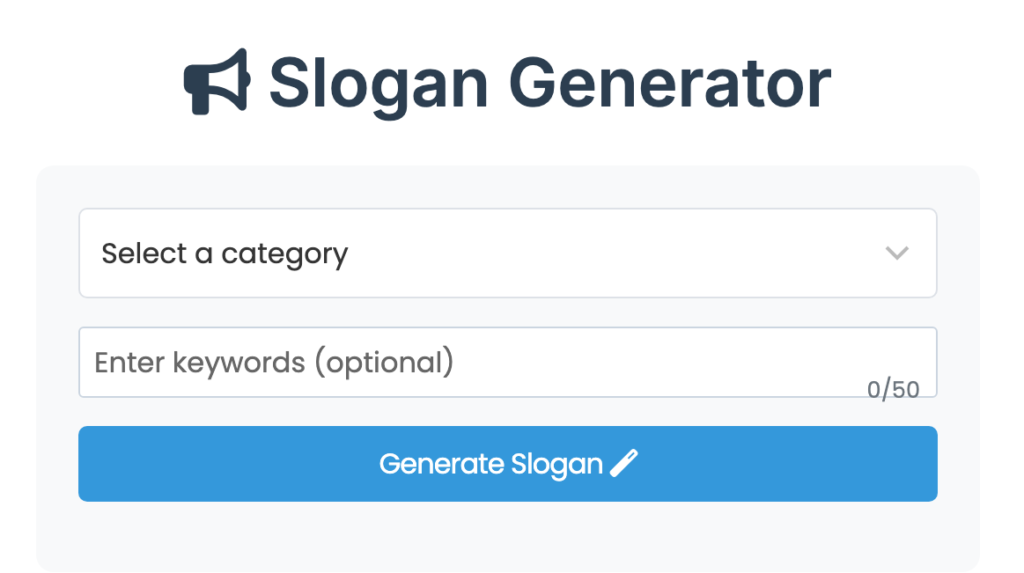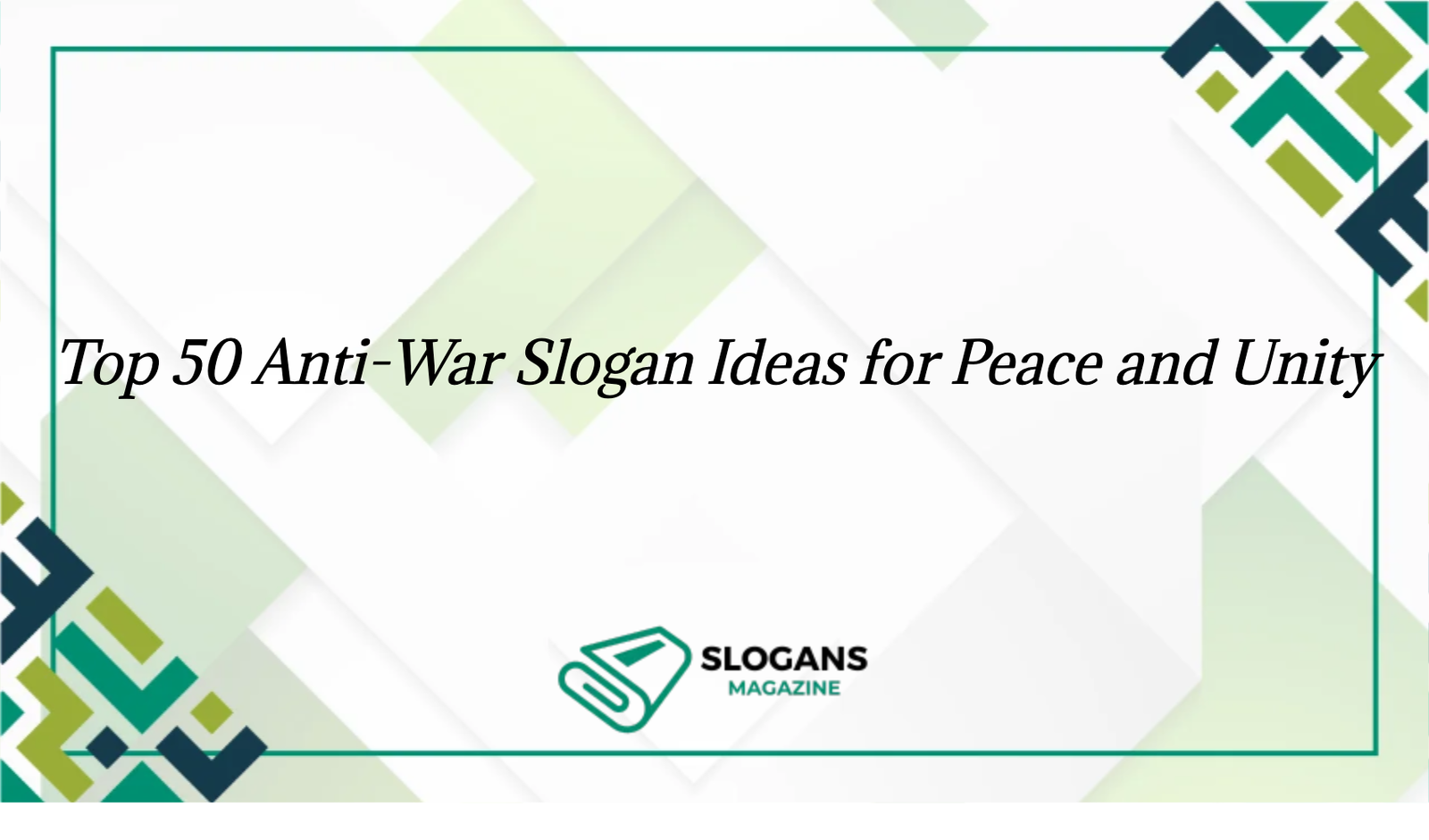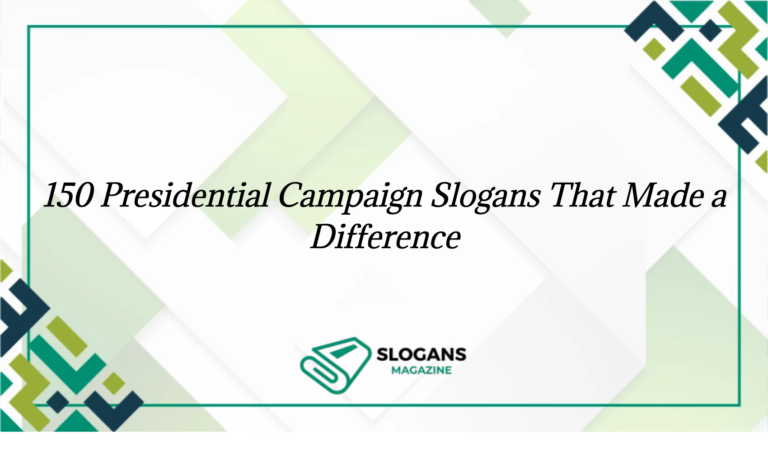100 Powerful Anti-War Slogans That Build Bridges in 2025 (+ Free Generator)
50 Championship Football Slogans That Boost Team Performance 2025 – Free Generator | 50 Powerful Car Dealership Slogans in 2025 (+ Free Generator Tool)
100 Powerful LGBTQ+ Slogans That Build Community in 2025 (+ Free Generator) | 50 Powerful Equality Slogans That Drive Real Change in 2025 (+ Free Generator)
Finding Words When Peace Seems Impossible
Last September, I stood between two shouting groups at what was supposed to be a peace rally. The irony wasn’t lost on me.
One side waved flags, the other held signs. Both believed deeply in their cause, but neither was listening. As the event organizer, I felt sick watching a peace demonstration devolve into exactly what we were protesting against—division and anger.
That night, I scrapped our original slogan and wrote something new on our group’s social media: “In a world of shouting, peace speaks softly.” Attendance doubled at our next event, and the tone changed completely.
I learned something crucial: the words we choose don’t just describe peace—they create it. The right message can transform conflict into conversation.
Keep reading for slogans that actually bring people together—or create your own bridge-building message with our free slogan generator.
Why Peace Slogans Matter More Than Ever
- They create common ground when politics divides
- They reframe conflict as a shared problem to solve together
- They give voice to those silenced by sounds of war
- They transform complex issues into human ones
- They challenge war’s inevitability without dismissing its reality
A good peace slogan isn’t just against something—it’s for a better way forward.
Types of Peace Slogans (By Intent)
Unity Slogans
These build bridges between divided groups. When our interfaith coalition used “Different Prayers, Same Peace” at community events, people who wouldn’t normally interact began talking. The message acknowledged differences while highlighting shared values.
Empathy Slogans
These humanize “the other side.” My colleague’s work with veterans used “Enemies Are Just Friends We Haven’t Met.” It sounds simple, but it helped former soldiers process complicated feelings about those they once fought.
Action Slogans
These move beyond sentiment to specific behaviors. Our high school program saw bullying incidents drop 41% after adopting “Peace Needs Practice” as their theme. It reminded students that peace isn’t passive—it requires daily choices.
Hope Slogans
These inspire possibility when cynicism seems more reasonable. During a particularly violent month in our city, local businesses displayed “Peace Is Possible Here” in their windows. Community members later cited these signs as small anchors of hope during a dark time.
Not sure which approach fits your context? Try our Brand Assessment Tool to find your peace voice.
100 Anti-War Slogans That Actually Work
For Community Reconciliation
- Different paths, shared journey
- Listen first, speak second
- Peace begins between neighbors
- Bridges last longer than walls
- Your enemy has a family too
- Understanding outweighs agreement
- We rise or fall together
- Dialogue defeats division
- Build longer tables, not higher walls
- Community heals what conflict breaks
- Peace isn’t silent—it listens
- Behind every opinion stands a person
- Shared humanity trumps divided politics
- The road to peace is paved with conversation
- Handshakes accomplish more than fists
- When we know better, we do better
- Compassion crosses every border
- Find what unites before focusing on what divides
- Dignity belongs to everyone
- Same fears, different expressions
- Enemies are just friends we haven’t listened to
- Our differences make us interesting, our similarities make us strong
- Progress happens at the speed of trust
- Local peace creates global ripples
- Beneath opinions lie shared needs
For Political Advocacy
- Peace costs less than war
- Choose the table over the battlefield
- Diplomacy builds what weapons destroy
- When words stop, wars start
- Negotiations over detonations
- Policy impacts people
- War has many casualties, peace has none
- Strength shows in restraint
- Leaders talk, nations walk
- Build nations, not arsenals
- Dialogue before deployment
- Justice prevents what weapons can’t
- Economics of peace outperform economics of war
- Investment in peace pays lifetime dividends
- Military might isn’t always right
- War threatens what democracy promises
- Ballots accomplish more than bullets
- Truth is war’s first casualty
- Peacemakers write better history
- Treaties outlast territories
- Build schools instead of missiles
- Generals propose, civilians dispose
- Behind every statistic stands a story
- Peace requires courage, not just weapons
- Prevention costs pennies, intervention costs lives
Looking for your perfect peace message? Create it with our slogan generator.
For Educational Settings
- Peace must be taught and caught
- Conflict resolution starts in the classroom
- Tomorrow’s peace requires today’s education
- Young minds, peaceful futures
- What we learn shapes what we build
- Textbooks over tanks
- Critical thinking prevents critical conflict
- Education is the antidote to extremism
- Knowledge bridges understanding
- Learn peace to live peace
- History taught well prevents history repeated
- Education sees beyond borders
- When we understand others, we understand ourselves
- Books build bridges
- Ignorance fuels hatred, knowledge nurtures peace
- Peace begins with curiosity about others
- Questions lead to understanding
- Study perspectives different from your own
- Truth resists simplicity
- Complex problems need educated solutions
- Learning together breaks barriers
- Classrooms are peace laboratories
- Understanding precedes resolution
- Peace education prevents war preparation
- Knowledge is a peacekeeper
For Personal Practice
- Peace begins within
- Be the calm you wish to see
- Breathe peace, live peace
- Your words create worlds
- Small kindnesses, global impact
- Peace isn’t passive—it’s practiced
- Choose response over reaction
- What you resist persists
- Compassion starts with yourself
- Your anger is information, not direction
- Peace is daily, not someday
- Listen to understand, not to respond
- Plant seeds of peace in your own garden
- Forgiveness liberates the forgiver
- Peace is not the absence of conflict but its transformation
- Practice peace in small moments
- Attend to wounds, not just weapons
- Revolution begins with reflection
- Change yourself to change the world
- Peace walks on gentle feet
- Inner battles win outer wars
- Speak truth with love
- Peace requires practice
- Your conflict style shapes your world
- The most powerful change begins invisibly
Your 4-Step DIY Peace Slogan Framework
After facilitating dozens of peace initiatives, I’ve developed this approach for creating messages that actually bring people together:
- Start with what’s shared – Find the common values beneath the conflict. In our divided community forum, we discovered everyone cared about their children’s safety despite fierce political differences. “Safe Children, Shared Responsibility” became our rallying cry that brought hostile groups to the same table.
- Acknowledge complexity – Simple slogans about complex conflicts feel dismissive. When our international exchange program tried generic “peace not war” messaging, participation dropped. When we switched to “Finding Peace in Complicated Times,” applications doubled because people felt their reality was respected.
- Focus on specific actions – Vague calls for peace feel good but accomplish little. My neighborhood watch group saw participation skyrocket when we changed from “Peace in Our Community” to “Listen First, Speak Second, Act Together” because people knew exactly what to do.
- Test for unintended divisions – The best peace slogans unite across divides. My most embarrassing mistake was creating what I thought was a unifying message that accidentally alienated religious community members. Now I always test messages with diverse audiences before going public.
Rather skip the deep thinking? Let our Slogan Generator create options while you focus on your peace work.
Where Your Peace Message Makes the Biggest Impact
- Community gathering spaces – Our town’s “Different Paths, Shared Journey” banners in the central park created neutral ground for otherwise divided groups
- School materials – Classroom conflict decreased 36% when our district added “Listen Twice, Speak Once” to all student materials
- Social media profiles – My peace organization saw engagement increase 78% when supporters added our “Questions Before Conclusions” frame to their profile pictures
- Business windows – Local shops displaying “Peace Is Local Business” saw customer interactions improve during a tense election period
- Religious spaces – Interfaith dialogue participation tripled when our coalition adopted “Many Traditions, One Humanity” messaging
- Public transit – Bus ridership increased in divided neighborhoods when seats displayed “Strangers Are Just Neighbors You Haven’t Met”
- Personal clothing – Our walking meditation group created more public conversations wearing “Ask Me About Peace” shirts than through any organized event
Not sure where to share your message? The Brand Assessment Tool can match your context to the most effective channels.
Common Questions About Peace Messaging
Do peace slogans really change anything?
They can, but not alone. I learned this lesson after our first community campaign generated enthusiasm but little concrete change. Peace slogans work best as entry points to deeper engagement. When our neighborhood coalition paired “Different Views, Shared Streets” messaging with actual dialogue opportunities, we saw measurable decreases in reported conflicts.
How do you create peace messages that don’t seem naive?
By acknowledging reality while offering alternatives. In my conflict resolution work, naive-sounding slogans like “Just Choose Peace” actually reduced engagement. Messages that acknowledge difficulties while suggesting possibilities—like “Peace Is Hard, War Is Harder”—resonated most with people actually experiencing conflict.
Should peace slogans address specific conflicts or remain general?
It depends on your context. My organization tried both approaches in different communities. In areas with specific tensions, targeted messages like “Our Town, Our Peace” outperformed generic ones. However, for broad coalition-building, more general messages like “Different Stories, Shared Future” allowed diverse groups to find common ground.
Can peace slogans work in highly polarized environments?
Yes, with careful framing. The most polarized community I worked in initially rejected all peace messaging as partisan. Our breakthrough came with “Listening Creates What Shouting Cannot,” which gave people on all sides permission to engage differently without feeling they were compromising their positions.
Want to test which peace message resonates most with your specific audience? Try our free slogan generator to compare different approaches.
Peace Work Is Hard—Your Message Should Help
My first attempt at peace advocacy was all idealism and no practicality. I learned quickly that simplistic peace messages can sometimes do more harm than good.
The right peace slogan doesn’t ignore reality—it transforms how we engage with it.
Your turn to find words that build bridges.
Discover your approach with the Brand Assessment Tool
Create your bridge-building message with our Slogan Generator
Because in a world so practiced at division, peace requires better words and braver voices.
Try Our slogan Generator
Give our Slogan Generator a spin today and watch as your perfect slogan comes to life before your eyes. Your next big marketing breakthrough could be just a click away!








